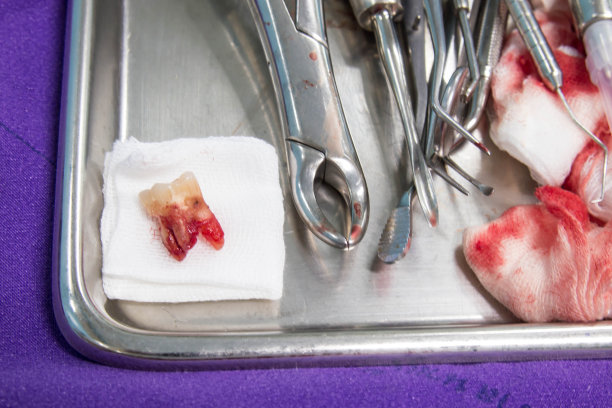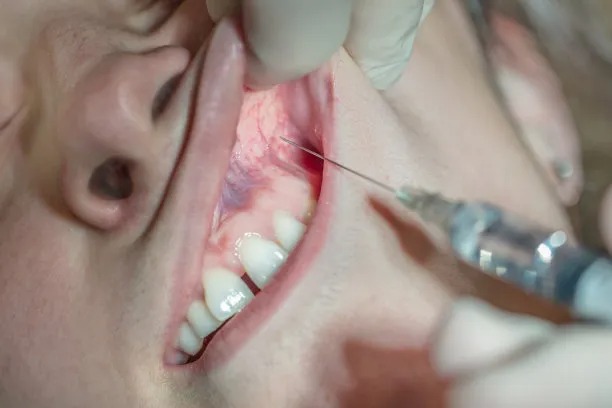Summary: Dental fillings are essential for restoring teeth damaged by decay or injury. However, ensuring successful filling procedures and maintaining optimal oral health after treatment necessitate strategic precautions. This article outlines crucial measures that include effective communication with your dentist, adhering to post-treatment care guidelines, understanding different filling materials, and scheduling consistent follow-ups. Each of these aspects contributes to the longevity of the filling and helps maintain overall dental wellness. By taking these precautions, patients can minimize discomfort, prevent complications, and ensure a healthier smile post-treatment.
1. Effective Communication with Your Dentist

One of the most critical aspects of a successful dental filling procedure is open communication with your dentist. Before the treatment begins, patients should discuss their dental history, including any allergies or prior experiences with anesthesia. Such conversations help the dentist tailor the procedure to meet specific needs and minimize discomfort.
Additionally, discussing the steps of the filling procedure can alleviate anxiety and enhance trust between the patient and dentist. Understanding what to expect during the treatment allows patients to mentally prepare and cope better with the situation. This transparency also fosters a collaborative environment, where patients feel empowered to ask questions and express concerns.
Furthermore, informing the dentist about any medications you are taking is crucial. Certain drugs may affect the procedures success or interfere with anesthetics. By maintaining an ongoing dialogue, patients can ensure that their dentist has all the necessary information to provide safe and effective care.
2. Adhering to Post-Treatment Care Guidelines
Post-treatment care is equally essential in maximizing the success of dental filling procedures. Patients are often advised to avoid eating for a specific period after fillings to allow the anesthesia to wear off fully. Ignoring this guideline can lead to accidental biting of the tongue or cheek.
Moreover, patients should follow their dentists recommendations regarding oral hygiene after the procedure. Using a soft-bristled toothbrush and non-abrasive toothpaste can help maintain the integrity of the filling. Flossing gently around the filling site is also vital to prevent plaque buildup and protect against decay.
Additionally, individuals should monitor any unusual symptoms, such as excessive pain or sensitivity in the filled tooth. Reporting these issues promptly allows the dentist to address potential problems before they escalate. Such vigilance can significantly contribute to the long-term success of the filling and overall oral health.
3. Understanding Different Filling Materials
Awareness of the various filling materials available is crucial for patients undergoing dental filling procedures. Common options include amalgam, composite resin, and gold, each with distinct properties. Amalgam fillings are well-known for their durability, making them an excellent choice for molars that endure significant chewing pressure.
Conversely, composite resin fillings blend seamlessly with natural teeth, offering aesthetic benefits for front teeth. Understanding the pros and cons of each material helps patients make informed decisions, allowing them to prioritize both functionality and appearance.
Moreover, discussing the longevity and care requirements of each filling material with your dentist can ensure that you choose the best option for your lifestyle and dental needs. This insight can lead to a more personalized treatment plan, enhancing both satisfaction and outcomes.
4. Scheduling Consistent Follow-Ups
Regular follow-up appointments are essential to monitor the condition of dental fillings and ensure overall oral health. Dentists typically recommend scheduling check-ups at least twice a year, which allows them to evaluate the filling and address any emerging issues promptly.
These appointments provide a valuable opportunity for professional cleaning, which helps prevent decay and maintains oral hygiene. During follow-ups, dentists can also assess the integrity of the filling and determine if any adjustments are necessary.
Furthermore, follow-ups create a platform for ongoing education about oral health practices and preventive measures. By fostering a proactive approach to dental care through consistent visits, patients can optimize their oral health and extend the life of their fillings.
Summary:
In conclusion, successful dental filling procedures hinge on several essential precautions. By communicating openly with your dentist, adhering to post-treatment guidelines, understanding filling materials, and scheduling regular follow-ups, patients can significantly improve their treatment outcomes. With these strategies, one can ensure that dental fillings serve their intended purpose and promote lasting oral health.
This article is compiled by Vickong Dental and the content is for reference only.
Vickong Dental
Vickong Dental is a large medical group established in Hong Kong in 2008 by professors from well-known medical universities in Guangdong and Hong Kong, as well as medical doctors from key national '985' universities (including Master's supervisors and senior professors). The chain of branches brings together expert dentists with PhDs and Master's degrees from Hong Kong and Mainland China, committed to providing high-quality dental treatment.
"Vickong Dental Practices the University Motto of 'Healing and Serving Society,' with a Stable Operation for Sixteen Years. It Has Been honored with Hong Kong Enterprise Leaders's Choice,' and is a Global Trusted Implant Center for the Nobel Implant System. Recommended by Hong Kong Metro Broadcast and Guangdong Television, it Serves Customers from Over Thirty Countries and Regions, Gaining the Trust and Favor of Citizens from the Guangdong-Hong Kong-Macau Greater Bay Area and Surrounding Cities.

Thousands of customers' unanimous praise
The most recognized and highly recommended dental service by customers in the Guangdong-Hong Kong-Macau Greater Bay Area
We Ensure You Receive Detailed Care and Attention Here
Hong Kong standards, Shenzhen prices, Your Trusted English-speaking dentists

Vickong Dental Medical-Grade Instrument Disinfection Process
Vickong Dental Medical-Grade Instrument Disinfection Process

Vickong Dental Chain: A Warm and Comfortable Environment for Treatment






Appointment Hours

Q&A
Why choose Vickong Dental?
Vickong Dental practices the university motto 「Medicine to Benefit Society」, with each branch bringing together highly qualified dentists with doctoral and master’s degrees from Hong Kong and the Mainland, and has maintained seventeen years of steady operation。Recipient of 「2024 Hong Kong Enterprise Leaders Brand」, 「2025 Hong Kong Enterprise Leaders Brand」, a Nobel Biocare Global Trusted Implant Center, and a brand recommended by Metro Radio Hong Kong and Guangdong TV。
To date, we have served customers from more than thirty countries and regions,earning exceptionally high word-of-mouth recognition and trusted recommendations from residents across the Guangdong-Hong Kong-Macao Greater Bay Area and surrounding cities
We have eight major branches in Zhuhai、Shenzhen,and a consultation and service assurance center in Hong Kong,so you can book a free consultation at any time for any questions,which is very reassuring.
If I do not accept the quotation after the CT scan, will I be charged??
No! As long as the actual treatment has not started, you will not be charged any fees.
Will there be any additional charges during the treatment process?
No, there won’t be any additional charges. Before treatment begins, we will clearly explain the treatment plan and its corresponding fees. Only after the patient agrees and signs the consent form will we proceed with the dental service.
Can I pay in Hong Kong dollars?
Yes. Vickong Dental accepts payment in Hong Kong dollars. The amount will be converted based on the exchange rate of the day, and the applicable rate will be clearly communicated to you in advance.
Can I reschedule my appointment at any time?
Yes. Please contact us via **WeChat** or **WhatsApp** as early as possible, providing your original appointment time and details, along with your preferred new date and time slot for rescheduling.













